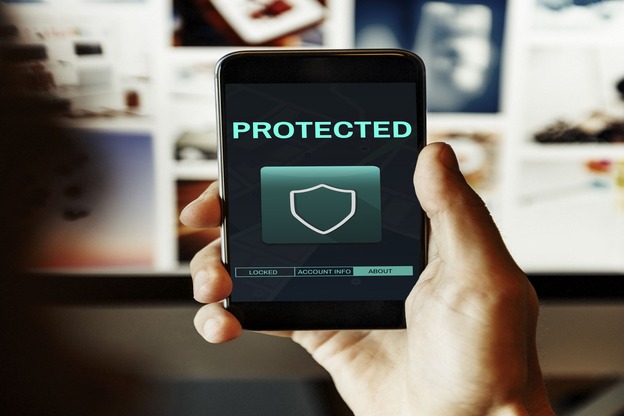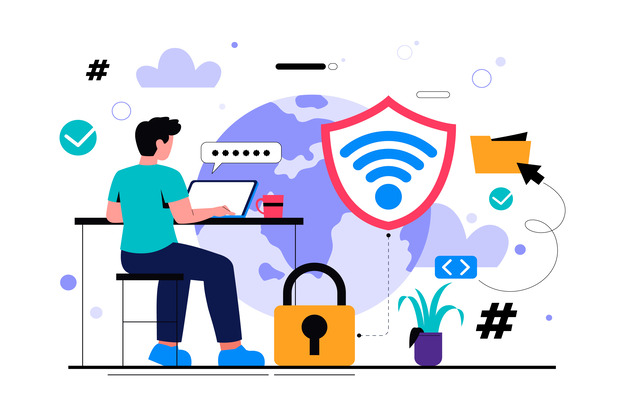
How VPN Are Changing the Scenario for Online Gaming Security?
With millions of online players, online poker has become highly popular over the last few years. The massive shift from land-based gambling to digital poker has allowed enthusiasts to gamble anytime and anywhere. However, with these opportunities, cybersecurity threats are also on the rise with data breaches, identity theft and numerous other malicious activities.
In this scenario, VPNs (Virtual Private Networks) have emerged as a critical resource for users who need to protect their personal information and data. This article analyzes the role of VPNs in online poker, focusing on the protection of personal data, anonymity and geographical blocking.
The Growing Need for Online Privacy in Poker
The emergence of new technologies has led to the rise of numerous opportunities for hackers and cyber criminals, thus increasing the need for online privacy security. The demand for VPNs became inevitable in the evolving online environment. Statista estimates that the global Information Security Market (ISM) should reach approximately 127 billion by 2027.
In the course of engaging in online poker, users willingly provide large volumes of personal and financial information, including payment methods, social security numbers and even banking details. Such detailed data, unfortunately renders online poker players a privileged market to cybercriminals who would exploit weaknesses in poker platforms for monetary gain.
With many accessing online poker rooms from public networks such as Wi-Fi available in coffee shops and airports, the risk for data theft intensifies. McAfee reported in a 2020 study that 43% of cyberattacks are directed at small businesses and online gambling did not rank among the most susceptible ones.
In addition to the risk of hacking, online poker players experience the growing problem of being monitored. A large number of gambling companies track user activity for advertising or sell the information to other companies. While tailored ads may enhance the experience for players, other individuals may suffer because their private information is sold. In an effort to block such privacy threats, an increasing number of players are resorting to VPNs.
How VPNs Protect Your Personal Data While Playing
A Virtual Private Network (VPN) creates a secure ‘tunnel’ for internet traffic, making it impossible for anyone to intercept and access the content being transferred. This form of encryption guarantees that a player’s sensitive data, such as usernames, passwords, credit card information and even personal identification numbers, remains safe from the prying eyes of hackers and other malicious individuals. Without a VPN, online poker players accessing poker rooms over open connections such as public Wi-Fi may have to deal with data theft.
Cybercriminals are always on the lookout for sensitive, unprotected information. This makes logging into poker accounts over open networks like public Wi-Fi extremely dangerous. With a VPN, however, the connection between the player and the poker site enjoys full encryption. This makes it next to impossible for someone to access sensitive information and paves the way for safe playing even on unsecured networks.
VPNs also provide anonymity from advertisers, hackers and even the poker platform. The technology masks a player’s real IP address, which masks their true location, allowing them to perform any internet-based activities discreetly. VPN’s ability to make it seem as though a user is operating from a completely different location allows them to bypass region restrictions freely.
Since some players may be worried about account hackers, VPNs provide other useful services by masking their IP addresses. This makes it harder for attackers to find a player’s digital persona, hence guarding the player’s account from compromise. For valuable poker players, this extra level of protection reinforces cybercriminals’ resolve against attempting login credential theft.
For other players who intend to use a VPN while playing their favorite poker games online, selecting a VPN compatible with the specific poker platform is critical. Not all VPN services are good for all sites and using the wrong service may bring about connection problems or even suspension of the account. So it is very important to choose a VPN that has proven trustworthy and reliable, as well as thoroughly tried out by other poker players for optimal functionality.
Bypassing Geographical Restrictions in Online Poker
VPNs enable players to circumvent geographical limitations as one of their unique advantages. A player’s location determines whether they can access a poker room or not because of numerous legal and other considerations.
Certain regions have very strict restrictions when it comes to online gambling and poker rooms may be inaccessible or completely blocked in certain jurisdictions. Such players typically use VPNs so that they can masquerade as being located in regions where online poker is legal.
A case in point is the fact that some states within the United States restrict online poker, not to mention countries like China and India. Players can circumvent these barriers and freely access their preferred poker rooms by using VPNs to connect to servers in jurisdictions where poker is legally accepted. This unique capability of being able to change their physical location digitally means that players can participate in cash games, tournaments and other poker-related activities which would otherwise be inaccessible due to regulations outside their region.
Additionally, a VPN can help players gain access to better games or betting odds. Some online poker rooms offer different variants of poker according to the region and players may want to link to a server in a region with better options for playing. For instance, players in countries with smaller online poker markets may wish to use a VPN to play in more developed markets. This practice can greatly expand access to tables, tournaments and high-stakes games that would otherwise be restricted.
Using a VPN to circumvent geographical limitations has become more and more common. An EGBA report noted that approximately 23% of online gamblers used VPNs to access gambling services that are blocked in their region. Although prevalent among poker players, it is critical to mention that the legality of using a VPN for online gambling is determined by local laws and frameworks.





